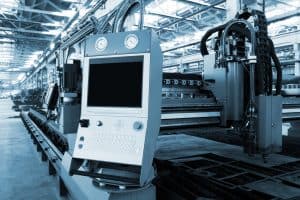
Seven in 10 executives believe that long-term business success requires the integration of Industry 4.0 technologies into their operations.
Industry 4.0 — the digitization of physical assets and connectivity between networks of producers and partners — has been on the scene for some time now, expanding across Europe and increasingly in North America. However, most business leaders are not yet tapping the full power of Industry 4.0 technologies.
That’s the takeaway from a recent survey of 2,000 C-suite executives released by Deloitte, which finds enthusiasm for Industry 4.0, but slow uptake. Seven in 10 executives believe that long-term business success requires the integration of Industry 4.0 technologies into their operations.
See also: How AI Will Make Industry 4.0 Profitable
There are plenty of believers, but few actual converts. So far, only 10 percent of the executives surveyed indicated they had long-range strategies to leverage new technologies that reach across their organizations. Two-thirds, on the other hand, admitted they had no discernible Industry 4.0 strategy or were taking ad-hoc approaches.
The study’s authors define Industry 4.0 as “the marriage of physical assets and advanced digital technologies — the Internet of Things, artificial intelligence, robots, drones, autonomous vehicles, 3D printing, cloud computing, nanotechnology and more — that communicate, analyze, and act upon information, enabling organizations, consumers, and society to be more flexible and responsiveness and make more intelligent, business-driven decisions.” Industry 4.0 also paves the way to corporate social responsibility, the survey’s authors emphasize.
Among the smaller segment of companies with comprehensive Industry 4.0 strategies, the results so far are impressive. Those with strategies report progress on a number of fronts: 73 percent of those with a strategy report success in protecting their businesses from disruption, versus 12 percent of those with more scattershot approaches. Likewise, 61 percent of those with Industry 4.0 strategies report they have developed innovative products and services, versus 12 percent of those lacking strategies.
Those executives with strategies also are growing more financially, and making more progress investing in technologies that have a positive societal impact, the study shows.
What does it take to assemble an Industry 4.0 organization? Technology is the foundation, of course. The Deloitte survey also revealed Industry 4.0 technologies are having the greatest impact:
- Internet of Things 72%
- Artificial intelligence 68%
- Cloud infrastructure 64%
- Big data/analytics 54%
- Nanotechnology 44%
- Advanced robotics/robotic process automation 40%
- Sensors 40%
It’s important to add that technology in and of itself doesn’t deliver growth and profitability — the organization’s culture and willingness to adapt and change is a vital component of Industry 4.0. “Some associate advanced technologies mainly with efficiency, cost-cutting, and profit-maximizing,” the Deloitte authors note. “But companies that are succeeding in this era are those that understand technology can help in all areas of the business, including overall business strategy, workforce and talent strategies, societal impact, and of course, technological operations.”





























